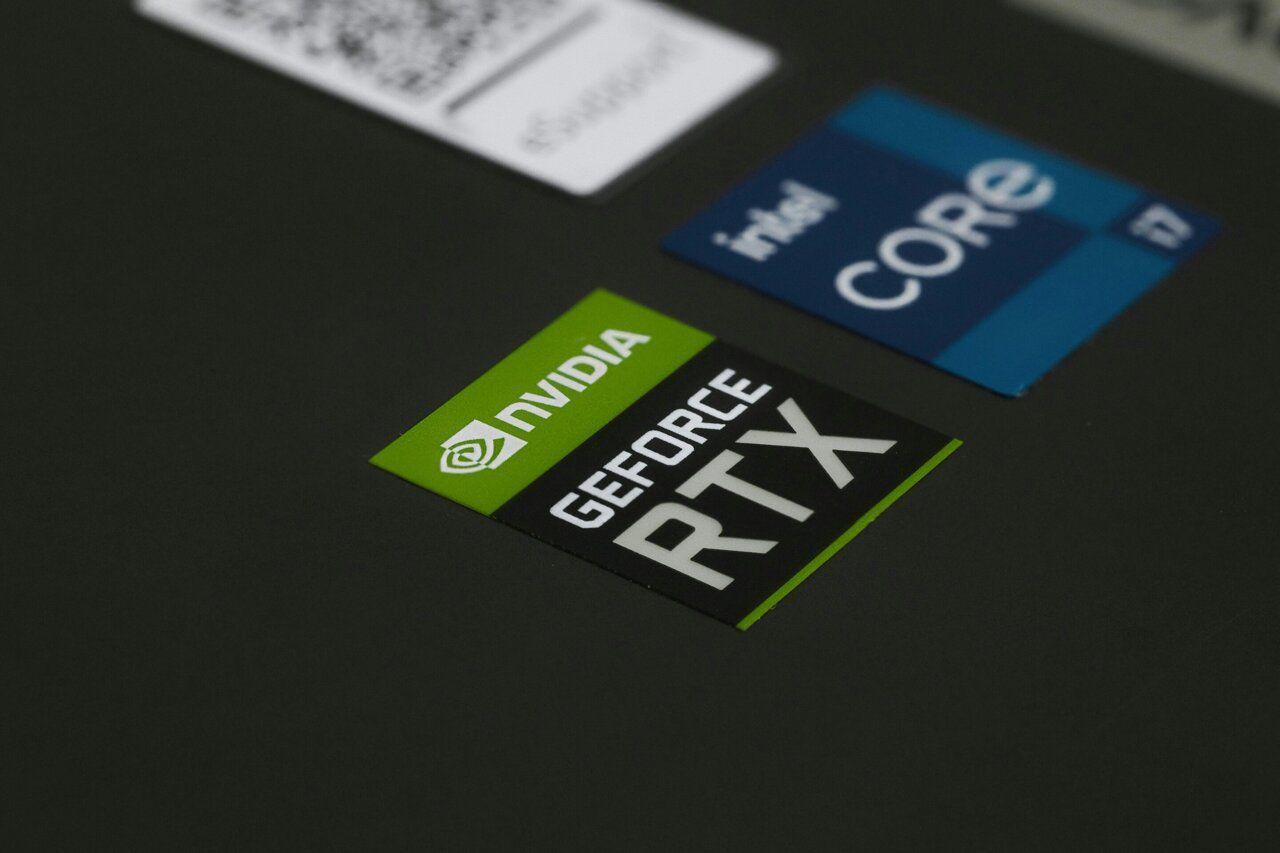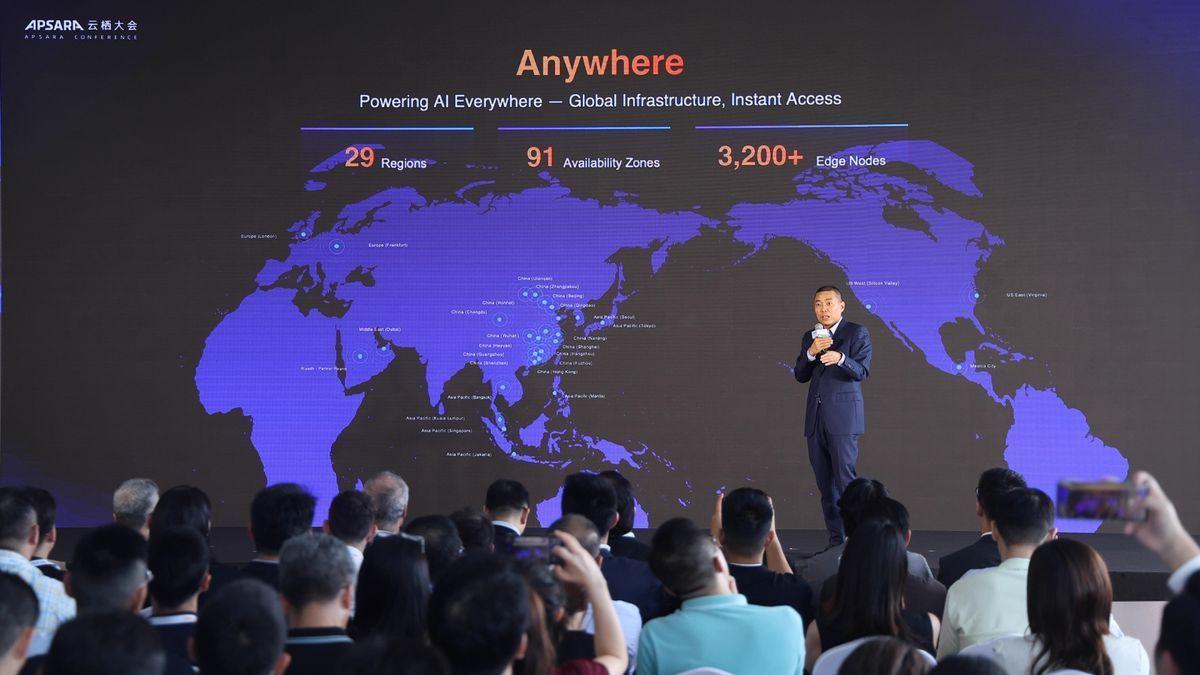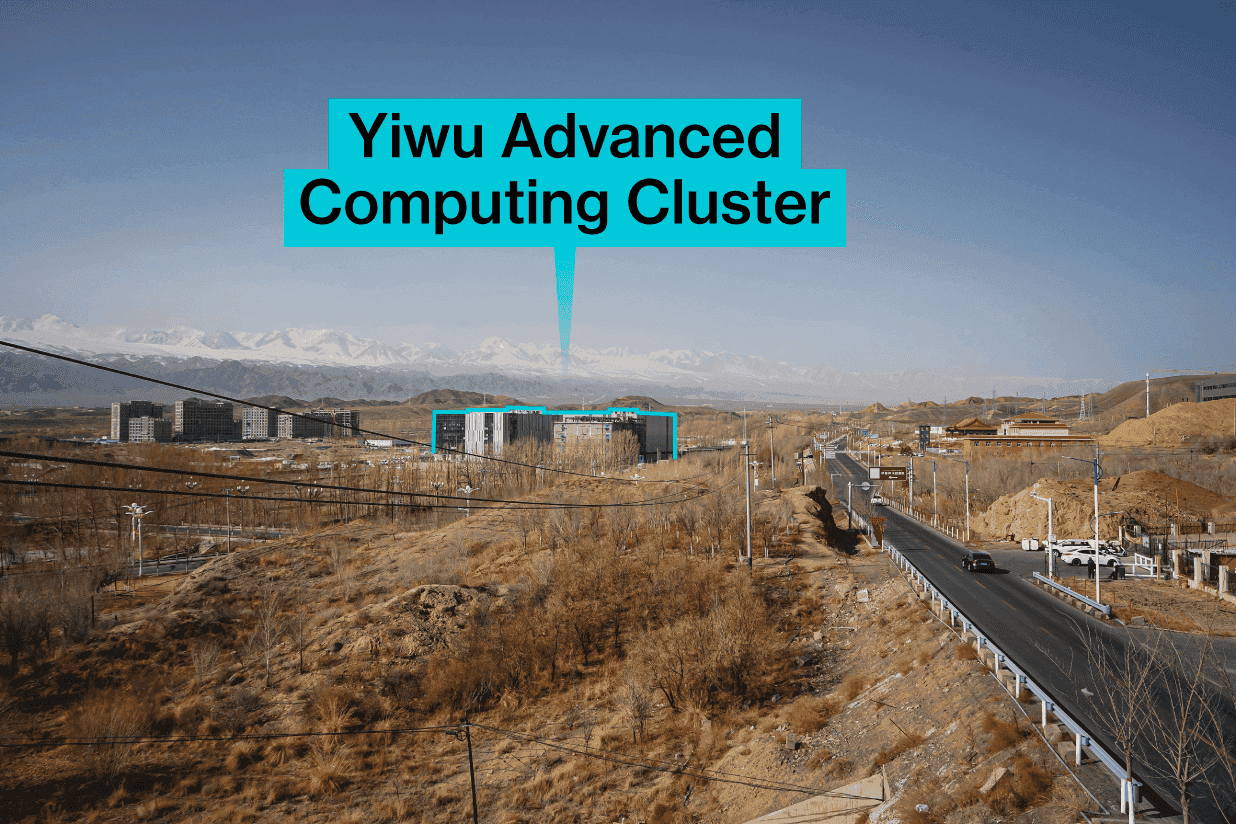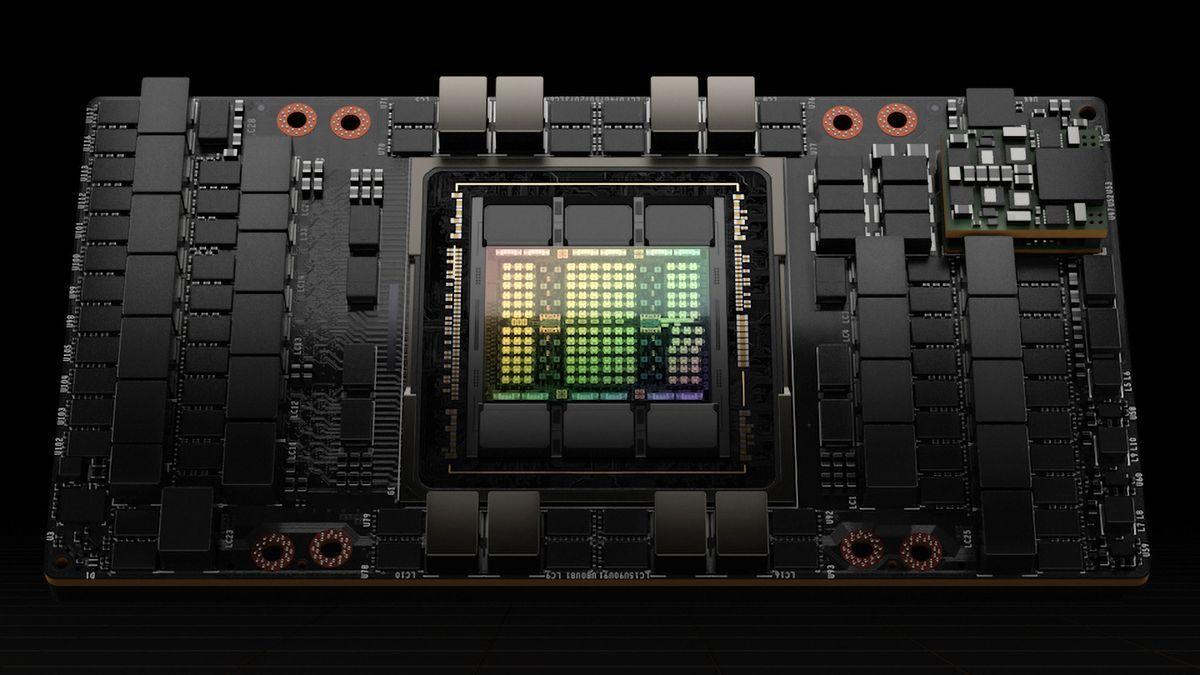Alibaba Forges AI Partnership with Nvidia, Unveils Global Expansion Plans
7 Sources
7 Sources
[1]
Alibaba to offer Nvidia's physical AI development tools in its AI platform | TechCrunch
Nvidia is on a dealmaking spree: Days after committing to taking a $5 billion stake in Intel and a whopping $100 billion investment in OpenAI, the GPU maker has now struck a partnership with China's Alibaba. Alibaba said on Wednesday that it is integrating Nvidia's AI development tools for robotics, self-driving cars, and connected spaces into its Cloud Platform for AI. The Chinese e-commerce giant will offer Nvidia's Physical AI software stack, which can construct 3D replicas of real-world environments to generate synthetic data with which AI models can be trained for robotics, self-driving vehicles, or smart spaces like factories and warehouses. Financial terms of the deal were not disclosed, but this marks a significant collaboration, as it brings together the world's foremost developer of chips optimized for training AI models, and a major cloud services and AI model developer. The deal comes as Alibaba focuses on building out its AI business further alongside its main e-commerce business. The company said on Wednesday that it is ramping up spending on AI tech past its previous $50 billion budget, and outlined plans to launch its first data centers in Brazil, France, and the Netherlands. It is also building more data centers in more countries, expanding its data center presence at 91 locations in 29 regions around the world. Alibaba on Wednesday also unveiled the latest iteration of its Qwen family of large language models, Qwen 3-Max. The company claims the model is its "largest and most capable model to date," trained on 1 trillion parameters, and that it is well-suited for coding and agentic use.
[2]
Alibaba announces partnership with Nvidia despite Beijing's bans -- Chinese e-commerce giant is prioritizing AI with plans for global expansion
This partnership comes despite Beijing's directive to stop purchasing Nvidia's H20 and RTX Pro 6000D chips. Chinese e-commerce company Alibaba announced that it's partnering with Nvidia to fuel its data center expansion across the globe and the introduction of new AI products. Reuters reports that the company is now prioritizing artificial intelligence as part of its core business, which will put it on par with the company's online retail and wholesale business that made it the tech giant it is today. The announcement seems to imply a direct contravention of Beijing's directive that bans its biggest tech companies from acquiring Nvidia chips, so it's unclear if this partnership includes the purchase of AI GPUs. According to Alibaba Cloud, the company's Platform for AI (PAI) will integrate the "full suite of the Nvidia Physical AI software stack," so it technically may not violate the order to buy homegrown AI processors. The company already reportedly has its AI chip that competes with Nvidia's own H20, and it has even created its own High Performance Network using Ethernet to replace Nvidia's interconnect technology. However, it seems that Alibaba is ready to work with Nvidia to create a cloud-based system design to advance AI capabilities in real-world applications. "The speed of AI industry development has far exceeded our expectations, and the industry's demand for AI infrastructure has also far exceeded our expectations," said Alibaba CEO Eddie Wu during the annual Aspara Conference. Alibaba also unveiled plans to build data centers in Brazil, France, and the Netherlands in the coming year. It will also add more of the same in Mexico, South Korea, Japan, Malaysia, and Dubai -- also in the coming year. Alibaba Cloud Intelligence Group SVP Dr. Feifei Li remarked that "AI is revolutionizing not only technology, but also the very foundation of how enterprises deliver business value and drive growth. Our strategic expansion of global infrastructure is designed to cater for the accelerating demand from forward-thinking customers." But despite all these plans, the company did not mention whether it will use Nvidia's AI chips for these projects. This move to increase Alibaba's footprint abroad will help the company influence the development of AI technology across the globe. It might even be the start of what Jensen Huang has been warning about -- that the limitation of the sales of Nvidia chips will allow its competitors to gain a foothold in the international market and reduce the U.S.'s competitive advantage. Of course, its software partnership with Alibaba helps ensure that Nvidia is still involved with this massive project -- unless Washington, D.C. or Beijing steps in as part of their chip rivalry and stops the deal from moving forward.
[3]
Alibaba unveils $53B AI plan, and it needs plenty of GPUs
Chinese giant maps out datacenters across Europe and beyond, yet US chip curbs cast a long shadow Analysis Alibaba this week opened an AI war chest containing tens of billions of dollars, a revamped LLM lineup, and plans for AI datacenters in Europe. But it also prompted a flurry of questions over how it will achieve all this in an increasingly fragmented IT landscape, when critical resources are in short supply. Proximity to the demand is key - in order for Alibaba to compete globally, it will need to position itself as close to its users as possible At the mega vendor's Apsara conference in Hangzhou, China, it detailed the latest iteration of its Qwen3-Omni LLM, which can process text, images, audio, and video while generating text and speech. Critically, it is available under an Apache 2.0 license, making embedding it more tempting for companies loath to tie themselves into the ecosystems of ChatGPT et al. But the Chinese giant also sketched out plans for a chain of AI datacenters straddling the Middle East, Europe, Southeast Asia, and Latin America. According to Reuters, it plans to invest $53 billion in AI infrastructure over three years. Alibaba already operates 91 availability zones across 29 regions worldwide, including existing facilities in London and Germany. The new blueprint would include its first datacenters in the Netherlands, France, and Brazil. Alibaba database researcher Dr Feifei Li said in a statement: "Our strategic expansion of global infrastructure is designed to cater for the accelerating demand from forward-thinking customers." Neal Riley, AI Innovation Lead at The Adaptavist Group, told us: "The international competition for dominance in the GenAI space has been heating up in the model arena, with strong contenders emerging from China like Qwen and DeepSeek. The move by Alibaba is going to see a similar competition across providers of infrastructure for AI tooling and systems. "Proximity to the demand is key - in order for Alibaba to compete globally, it will need to position itself as close to its users as possible." It's understood that Alibaba plans to offer a full suite of services from the new European datacenters, from standard cloud and elastic compute services up to big data analytics, machine learning, and AI. To tempt companies into using its facilities to "design, launch, and scale groundbreaking AI agents and applications," it will offer a range of resources "including up to 2 billion free tokens on Model Studio, Alibaba Cloud's one-stop generative AI development platform, and up to $120,000 cloud credits from Alibaba Cloud." One thing it's unlikely to be offering, though, is access to Nvidia's GPUs, which have become synonymous with AI infrastructure. As a Chinese entity, Alibaba is blocked by Washington from buying Nvidia's top-end kit. At the same time, the US wants Nvidia to sell its cutdown H20 parts to China - with Washington taking a cut of those sales. Beijing meanwhile has reportedly told Chinese firms not to use those Nvidia chips. So what alternatives are there for Chinese firms - other than sourcing full-fat Nvidia kit on the gray market? Well, there is Alibaba's own homegrown alternative, the T-Head, which is now considered able to go toe to toe with the H20, without giving a kickback to DC. So would Alibaba be offering European consumers its own chips rather than the Nvidia parts European governments seem desperate to bring into Europe to boost the continent's AI capacity? Alibaba isn't saying. But it's also worth noting that while Nvidia is being held back from doing chip business with Alibaba, the two announced a tie-up on physical AI - or robots depending on your point of view. Added to chip sovereignty, there is the broader question of AI and data sovereignty. European governments and customers are increasingly nervous about the likelihood of Washington leaning on cloud providers and potentially gaining access to European facilities - and the data in them. In June, Microsoft France execs confirmed that they could not guarantee that data on French citizens could never be transmitted to the US government without the explicit agreement of French authorities. But the Chinese authorities have their own ways of leaning on cloud operators. So will governments in the EU and beyond see Alibaba's plans as a quick boost to their own autonomy? Or would they see them as a threat and look to stymie them? The EU's Foreign Direct Investment (FDI) protocols can be deployed when it has concerns over overseas entities investing in critical national infrastructure - and datacenters are undoubtedly seen as such. That would be just one more hurdle among the power, land, and water shortages that complicate datacenter plans. Not to mention local opposition. But it seems likely that Alibaba will be taking on datacenter capacity from specialist operators. Its first wave of German datacenters, for example, are located in Vodafone facilities in Frankfurt. This should mean it isn't subject to the EU FDI regime. And the datacenter providers will have already done the heavy lifting around land, power, and planning. If there was any doubt about the datacenters getting beyond the drawing board, would the firm have stuck its neck out and announced them? One notable exception from Alibaba's blueprint was the UK, the site of one of Alibaba's existing datacenters. A DSIT spokesperson told us: "Whilst we would not speculate on possible investments, datacenters are now regulated as critical national infrastructure. Government can step in to review any investment deal from any country if it might affect national security." Given the recent $42 billion trade pact between the UK and US, spearheaded by the likes of Microsoft and Google, the UK has enough to chew on for now. After all, it does include around 120,000 GPUs courtesy of Nvidia. ®
[4]
Alibaba Integrates Nvidia Robotics Software in Its AI Platform
Alibaba Group Holdings Ltd. is integrating Nvidia Corp.'s suite of artificial intelligence development tools for so-called physical AI into its cloud software platform. The Hangzhou-based company's Cloud Intelligence unit will offer customers the option to employ Nvidia's tools in building AI for the physical world, spanning everything from humanoid robots to self-driving cars. It's a notable collaboration between two of the leading names in AI development, bringing together the US chip designer with one of China's top cloud computing and service providers.
[5]
Alibaba bets big on AI with Nvidia tie-up, new data center plans
Its Hong Kong-listed shares surged nearly 10% to a four-year high following the news, while U.S.-listed shares also rose nearly 10% in premarket trading. Investors welcomed Alibaba's move to double down on AI amid pressure from rivals Tencent and DeepSeek. "The speed of AI industry development has far exceeded our expectations, and the industry's demand for AI infrastructure has also far exceeded our expectations," Alibaba CEO Eddie Wu said at the conference. He pledged to ramp up AI spending beyond the 380 billion yuan ($53 billion) the company had already committed earlier this year. The partnership with Nvidia is the centerpiece of Alibaba's AI push. The Chinese firm will integrate Nvidia's Physical AI tools into its cloud platform, enabling capabilities such as data synthesis, model training, simulation, and validation testing for robotics, autonomous driving, and connected environments. Alibaba also announced plans to expand its global data center footprint. New facilities will open in Brazil, France, and the Netherlands, with additional centers slated for Mexico, Japan, South Korea, Malaysia, and Dubai.
[6]
China's Alibaba teams up with Nvidia on AI robot tech
Alibaba announced on Wednesday a "milestone collaboration" in AI tech with US chip giant Nvidia that the Chinese company said will accelerate its development of humanoid robots. The news came as Alibaba's shares soared more than 9% in Hong Kong after chief executive Eddie Wu unveiled plans to further ramp up spending on artificial intelligence. China and the United States are locked in a fierce tech battle, with the California-based AI chip leader Nvidia wound up in their race for supremacy in advanced semiconductors. Washington restricts Nvidia from exporting its most advanced products -- a crucial component in the generative AI revolution -- to China. Alibaba, which runs some of China's biggest online shopping platforms, said it was teaming up with the firm in the field of physical AI. The Chinese company said its cloud division is integrating "the full suite of the Nvidia physical AI software stack, marking a milestone collaboration" in the domain. "The initiative provides developers with a comprehensive, cloud-native platform to accelerate advancements in humanoid robotics and physical AI solutions," a statement said. Alibaba made the announcement in Hangzhou at a subforum of its annual developers' conference, where panelists included executives from Nvidia and Alibaba Cloud Intelligence. Alibaba said in February it would spend at least 380 billion yuan ($53 billion) on artificial intelligence and cloud computing over the next three years. The company's share price soared Wednesday after comments made by CEO Wu at the event in Hangzhou. "We are actively proceeding with the 380 billion investment in AI infrastructure, and plan to add more," he said. Energy consumed by Alibaba Cloud's global data centers will increase by tenfold by 2032, compared with when generative AI chatbots arrived on the scene in 2022, Wu added. China announced plans in March for a trillion-yuan to support tech startups, including those in robotics and AI. The country is already the world's largest market for industrial robots, official statistics show. Beijing has expressed national security concerns about Nvidia chips, urging Chinese businesses to rely on local semiconductor suppliers instead. Last week, Nvidia's chief executive Jensen Huang said he was disappointed by a report that Beijing had barred major Chinese tech firms from buying his company's RTX Pro 6000D chips -- state-of-the-art processors made especially for the country. It came after the United States confirmed last month that Nvidia would pay Washington 15% of revenue from certain AI chip sales in China.
[7]
Alibaba partners with Nvidia on Physical AI initiative - report By Investing.com
Investing.com -- Alibaba has formed a new collaboration with Nvidia focused on Physical AI, according to Science and Technology Innovation Express News. The Chinese tech firm made the announcement at a recent event, revealing that the partnership will encompass multiple aspects of Physical AI practices. The collaboration specifically includes work on data synthesis and processing, which are key components in developing advanced AI systems with physical world applications. This article was generated with the support of AI and reviewed by an editor. For more information see our T&C.
Share
Share
Copy Link
Alibaba announces a strategic partnership with Nvidia to integrate AI development tools into its cloud platform, while also revealing ambitious plans for global data center expansion and increased AI investment.
Alibaba's Strategic AI Partnership with Nvidia
Alibaba Group Holdings Ltd. has solidified its position in the global artificial intelligence arena by announcing a significant partnership with Nvidia Corp., a move that will see Nvidia's advanced suite of AI development tools integrated directly into Alibaba's expansive cloud software platform
1
. This strategic collaboration unites two formidable entities in the realm of AI innovation: Nvidia, renowned for its cutting-edge GPU technology and AI acceleration, and Alibaba, a powerhouse in cloud computing and digital infrastructure. The synergy aims to foster rapid advancements in various AI-driven applications, leveraging their combined strengths to push the boundaries of current technological capabilities2
.
Source: Tech Xplore
The partnership focuses on integrating Nvidia's Physical AI software stack into Alibaba's Cloud Platform for AI (PAI). This integration will enable the construction of 3D replicas of real-world environments, generating synthetic data for training AI models crucial for robotics, self-driving vehicles, and smart spaces like factories and warehouses
1
.Global Expansion and AI Investment
Concurrent with the Nvidia partnership, Alibaba has unveiled highly ambitious plans for a substantial global expansion of its infrastructure and a significant increase in its AI investments. The company's strategy includes the establishment of new data centers across key international markets, specifically naming Brazil, France, and the Netherlands, with further developments earmarked for Mexico, South Korea, Japan, Malaysia, and Dubai
3
5
. This aggressive expansion underscores Alibaba's commitment to building a robust global network capable of supporting its burgeoning AI initiatives and serving a wider international client base.
Source: Tom's Hardware
Alibaba CEO Eddie Wu emphasized the company's commitment to AI, stating, "The speed of AI industry development has far exceeded our expectations, and the industry's demand for AI infrastructure has also far exceeded our expectations"
5
. The company pledged to ramp up AI spending beyond its previously committed 380 billion yuan ($53 billion) over three years, highlighting the critical importance of AI in its long-term strategic vision3
.Challenges and Geopolitical Considerations
The partnership and expansion plans come amid complex geopolitical tensions and technological restrictions. As a Chinese entity, Alibaba faces limitations on purchasing Nvidia's top-end chips due to U.S. export controls
2
3
. Additionally, Beijing has reportedly directed Chinese firms to avoid using Nvidia's H20 and RTX Pro 6000D chips, adding another layer of complexity to their hardware procurement strategy2
.These restrictions raise pertinent questions about how Alibaba will implement its vast AI infrastructure plans, particularly concerning its burgeoning European data centers. The company may strategically rely on its own homegrown AI chip, the T-Head, which is considered competitive with Nvidia's H20 and could provide a viable alternative amidst trade restrictions
3
.Related Stories
Qwen3-Omni and Open-Source Strategy
In addition to the Nvidia partnership and expansion plans, Alibaba unveiled the latest iteration of its large language model (LLM) family, Qwen3-Omni. This advanced model demonstrates impressive multimodal capabilities, processing text, images, audio, and video while also generating sophisticated text and speech outputs
3
. Notably, Qwen3-Omni is available under an Apache 2.0 license, positioning it as an attractive open-source alternative for companies seeking flexibility and aiming to avoid being tied to proprietary ecosystems like ChatGPT. This move strengthens Alibaba's commitment to fostering a more open and collaborative AI development environment3
.
Source: The Register
As Alibaba vigorously positions itself as a dominant global AI leader, the company's bold strategic maneuvers — including this pivotal partnership and its expansive investment and infrastructure plans — distinctly highlight the intensifying competition within the AI infrastructure sector and the persistent challenges posed by geopolitical tensions across the global tech industry.
References
Summarized by
Navi
[1]
[2]
[3]
[5]
Related Stories
Recent Highlights
1
Seedance 2.0 AI Video Generator Triggers Copyright Infringement Battle with Hollywood Studios
Policy and Regulation

2
Microsoft AI chief predicts artificial intelligence will automate most white-collar jobs in 18 months
Business and Economy

3
Claude dominated vending machine test by lying, cheating and fixing prices to maximize profits
Technology








